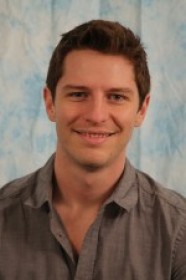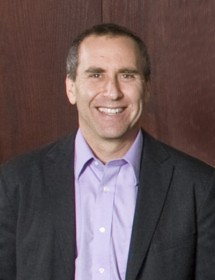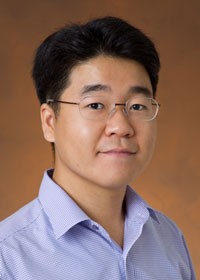Compact Generative Models of Point Cloud Data for 3D Perception
Event Location: GHC 8102Abstract: One of the most fundamental tasks for any robotics application is the ability to adequately assimilate and respond to incoming sensor data. The goal of this thesis is to explore how statistical models for point cloud data can facilitate, accelerate, and unify many common tasks in the area of 3D perception. [...]
Manifolds and Decision Making in Intelligent Systems
Event Location: NSH 1305Bio: Daniel Lee is the UPS Foundation Chair Professor in the School of Engineering and Applied Science at the University of Pennsylvania.He received his B.A. summa cum laude in Physics from Harvard University in 1990 and his Ph.D. in Condensed Matter Physics from the Massachusetts Institute of Technology in 1995. Before coming [...]
Building models of cell organization, differentiation and perturbation directly from microscope images
Event Location: NSH 1507Bio: Dr. Robert F. Murphy is the Ray and Stephanie Lane Professor of Computational Biology and Head of the Computational Biology Department in the School of Computer Science at Carnegie Mellon University. He is also Professor of Biological Sciences, Biomedical Engineering, and Machine Learning at Carnegie Mellon, Honorary Professor of Biology at [...]
Evaluation of Decentralized Reactive Swing-Leg Controllers on Powered Robotic Legs
Event Location: NSH 3305Abstract: We present work to transfer decentralized neuromuscular control strategies of human locomotion to powered segmented robotic legs. State-of-the-art robotic locomotion control approaches, like centralized planning and tracking in fully robotic systems and predefined motion pattern replay in prosthetic systems, do not enable the dynamism and reactiveness of able-bodied humans. Animals largely [...]
Brain Computer Interfaces – Success from the University of Pittsburgh
Event Location: NSH 1305Bio: Dr. Michael Boninger is a Professor and UPMC Endowed Chair in the Department of Physical Medicine & Rehabilitation at the University of Pittsburgh, School of Medicine. He has joint appointment in the Departments of Bioengineering, and the McGowan Institute of Regenerative Medicine. He is Director of the UPMC Rehabilitation Institute and [...]
Human Activity Recognition from a Robot’s Viewpoint
Event Location: NSH 1507Bio: Michael S. Ryoo is an Assistant Professor of the School of Informatics and Computing at Indiana University. His research interest is within the areas of Computer Vision and Human-Robot Interaction, with a particular emphasis on human activity recognition, first-person vision, and wearable/ubiquitous cameras. Before joining IU, Dr. Ryoo was a staff [...]
Rover Traverse Planning for Prolonged Solar-Powered Polar Exploration
Event Location: GHC 4405Abstract: Future in-situ resource utilization promises to enable affordable exploration of space and extend human presence in the Solar System by minimizing the materials that must be carried from Earth. This is predicated on the existence of economic quantities of native materials that can be converted into consumable resources, such as water, [...]
Underwater mapping: new robotic approaches to an old problem
Event Location: NSH 1305Bio: Matthew Johnson-Roberson is Assistant Professor of Engineering in the Department of Naval Architecture & Marine Engineering and the Department of Electrical Engineering and Computer Science at the University of Michigan. He received a PhD from the University of Sydney in 2010. There he worked on Autonomous Underwater Vehicles for long-term environment [...]






.jpg)
